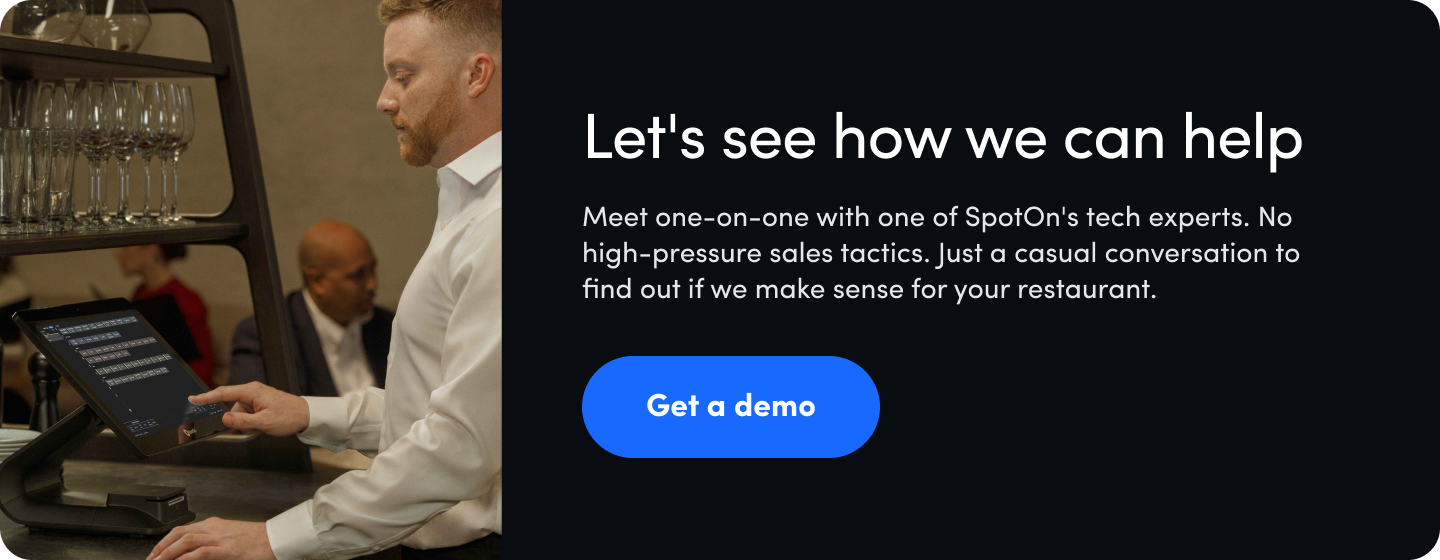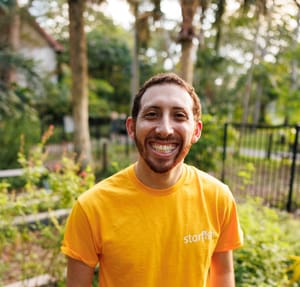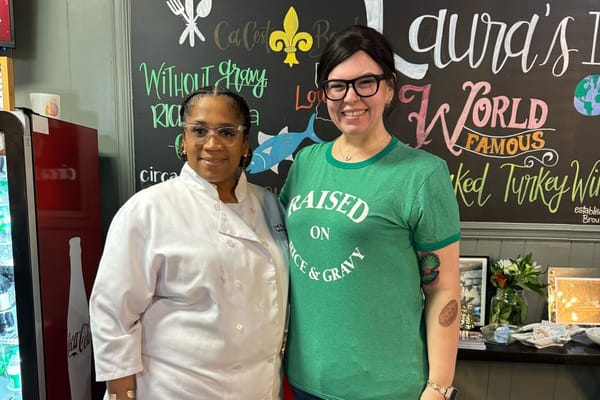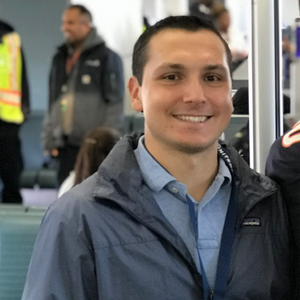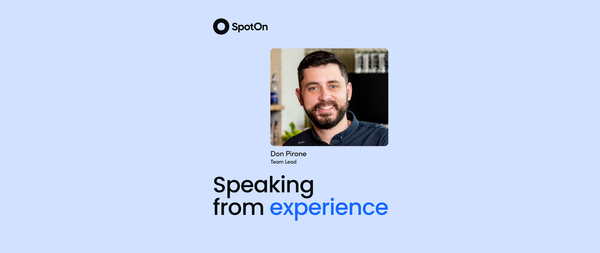Matthew Cook stood across the street from 850 Degrees, a popular woodfire pizza restaurant in Connecticut. He knew these types of businesses didn’t want to waste time listening to another sales pitch. Since he luckily knew the owners from his experience as a chef in New York City, Matthew already had a plan.
The owners of the restaurant previously supplied Matthew with the best ingredients for his favorite fine-dining restaurant, where Matthew himself worked to garner a reputation as both a talented cook and the ideal problem solver. If a kitchen spent too much on ingredients, he was there to help engineer a menu to reduce costs, all while making sure the food tasted phenomenal.
As a Hospitality Specialist with SpotOn, he wanted to check in on 850 Degrees and see if the owners were doing well. However, right before crossing the street, Matthew felt a cold hand on his shoulder. It was the manager from a neighboring restaurant, luring him away. “Don’t even bother with them,” the competing manager told Matthew. “They committed to a new POS system a year ago. Why would 850 Degrees ever need another point-of-sale?”
Matthew wasn't shocked to hear restaurant owners make these comments. He knows it all comes from the same place of worry. Restaurants never want to spend more than necessary since those extra costs will eventually bite them in the ass. Thankfully, after sparking a conversation, Matthew only had to ask the owners of 850 Degrees a few simple questions. Did their current POS system change anything for the business? Was there an improvement in wait times, the food quality, and the overall experience of eating a fresh pie straight out of the oven?
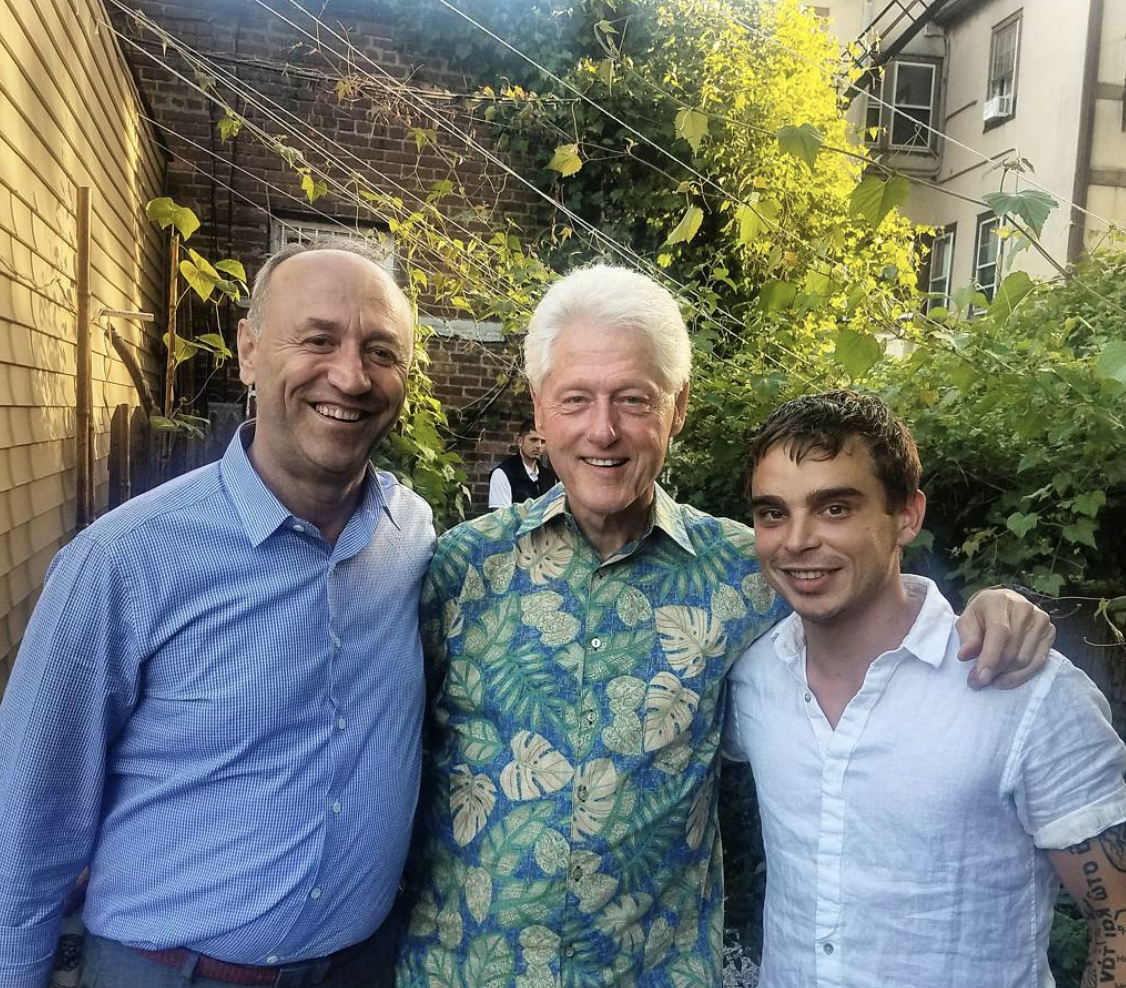
It didn’t take long for 850 Degrees to see how their point-of-sale system only maintained the bare minimum. Instead of synchronizing the kitchen to bring out more pizzas, their current POS system kept everything in the exact same place. Guests weren’t exactly dissatisfied, but they weren’t noticing any changes either. 850 Degrees also didn’t seem to notice a change in their overall profits and spending. That next day, after Matthew explained SpotOn’s online ordering platform and labor management software, 850 Degrees signed up for a new point-of-sale system.
Being a chef and working in hospitality aren’t about cooking. It’s about the ability to manage and coordinate other people, to work as a team and get things done. –Matthew Cook
Before joining SpotOn, Matthew lived up to the “cook” in his name. He was just nineteen when he unknowingly started out as a low-level chef in Cesare Casella’s fine-dining kitchen. The kitchen was everything Matthew imagined. Top-tier knives and quality ingredients. A prestigious, hardass chef with a James Beard nomination. A dedicated team scrambling to make the best meals. And then there was Matthew, completing vital yet simple tasks like grating cheese and peeling vegetables.
While he wasn’t new to the kitchen environment, Matthew already felt the pressure of the city's fine-dining scene right when he joined Casella’s team. “As soon as I got the job, I understood that I wasn’t a chef yet,” says Matthew. “Being a chef and working in hospitality aren’t about cooking. It’s about the ability to manage and coordinate other people, to work as a team and get things done.”
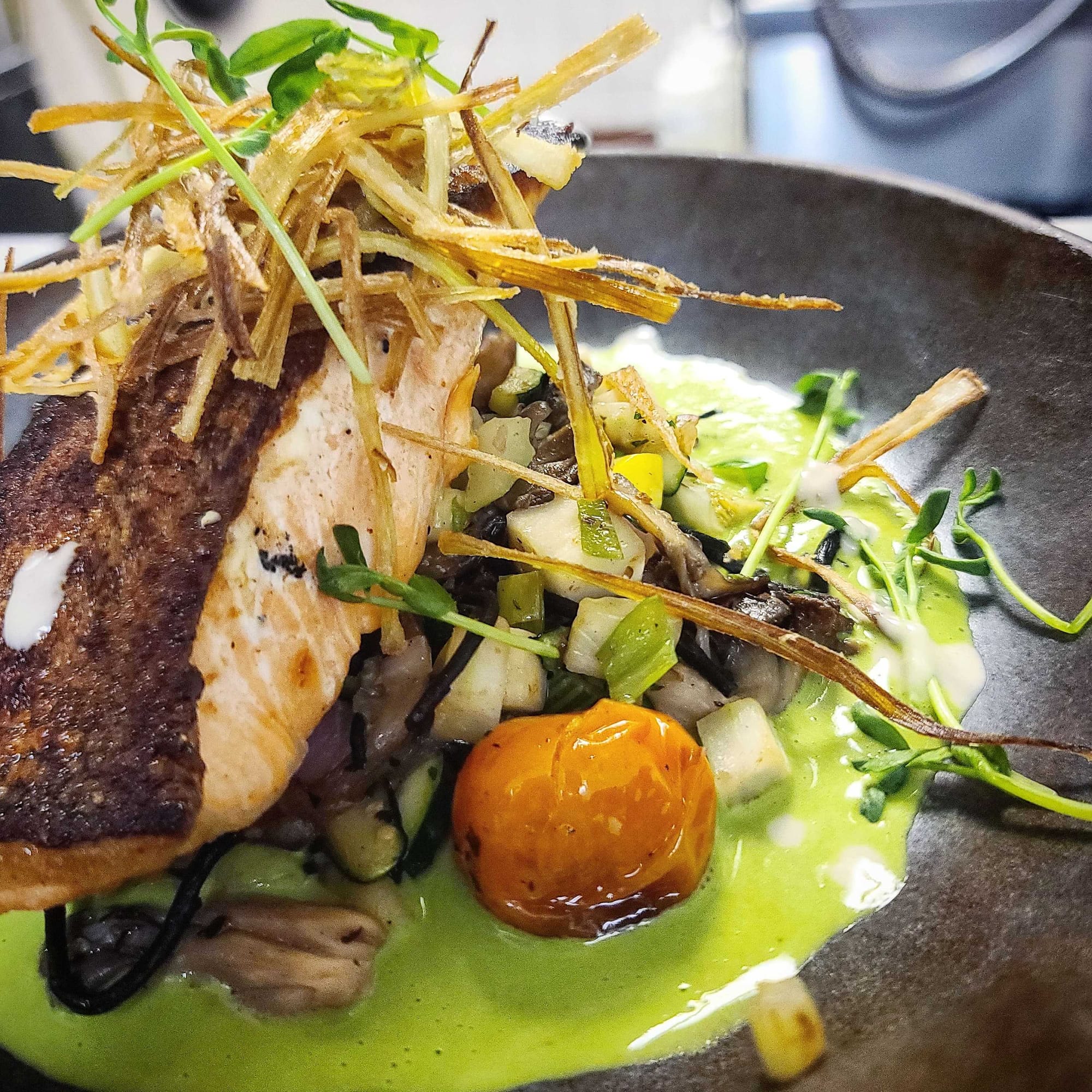
That time in Casella’s kitchen and other high-tier restaurants, such as Salumeria Rosi and The Fat Radish, all humbled Matthew. He learned how restaurants demanded their own methods to operate as efficiently as possible. If Matthew was asked to roast a pig, he couldn’t prepare the dish as he’d been taught by other chefs. He had to adapt and make sure the pig came out of the oven to the exact standards set by the restaurant itself. A successful restaurant, according to Mattew, didn’t only serve amazing meals. They ran a kitchen that harmonized with every single staff member alongside front-of-house operations, all to send out the best possible dish.
The most valuable lesson he learned about restaurants came from his mentor, Richard Farnabe, the Michelin Star chef behind some of the finest food establishments in New York City. “Farnabe taught me that the worst thing any restaurant owner can do is to hire four unqualified cooks instead of a single qualified chef,” says Matthew. “I get that restaurant owners want to cut down on costs each month. In the long run, the qualified chef will always be the better investment for your restaurant. It’s the same with your restaurant tech.”
It took Matthew nearly a decade of grinding in different kitchens to understand how he could become the solution that restaurants needed. If he wanted a job as a chef or consultant, Matthew didn’t go and show off his best attempt at a beef Wellington. He promoted himself as the solution to a problem the restaurant had yet to realize. “I would tell restaurants I’m the best cook because I can cut costs and enhance their current staff’s knowledge,” says Matthew. “I told them I will raise profit and increase their product value.” Now at SpotOn, Matthew treats that tech with that same reverence to refine services.

SpotOn itself feels like an extension of Matthew’s own passion to help restaurants grow. He first encountered SpotOn during one of his consulting sessions, where he helped a fine-dining restaurant rework its operations. After planning a new menu and hiring the right staff for the front- and back-of-house operations, Matthew now needed to find a point-of-sale system that could handle their upcoming flood of guests. While other POS providers were lacking when it came to personal attention, SpotOn actually gave a sh*t. The quick customer service and in-person installations all shined brighter than a freshly sharpened chef’s knife. “Everything about SpotOn’s point-of-sale system is dedicated to generating revenue and curiosity,” says Matthew. “There isn’t much fluff. You can ask questions, you can learn and find the right solution.”
Now as a Team Lead at SpotOn, he helps other Hospitality Specialists sell the solutions that restaurants love, such as tip management and payroll automation. He even tells them to call customer service to show that wait times can sometimes be less than the advertised two minutes. With Marketing Assist, Matthew’s got a new reason to speak to potential clients. As an early user of Instagram, he understands how valuable social media marketing can be for a restaurant, even if they don’t have the time to post regularly.

In the early days of social media, right as the app became popular, Matthew started posting amazing meals and little tips for restaurants to streamline their dishes. He soon amassed a following that eagerly awaited his every post. And as he kept sharing delectable dishes designed to make any scroller stop and salivate on the spot, he learned the power of marketing on those online platforms. Even though his nearly 8,000 followers at the time might not seem much in comparison to current influencers, there was always potential to build connections by giving what people wanted to see: relatable content that only could only be crafted by Matthew himself.
Thanks to Marketing Assist, Matthew is happy to help restaurant owners plan for a dimension of marketing that they always wanted to accomplish without needing to spend extra time away from their restaurant. They can simply set it and forget it.
“Restaurant owners view the world like The Matrix,” says Matthew. “They see numbers everywhere as the cost of everything. The wobbly corner table? That’s an expense. The chandelier with a few light bulbs flickering on and off? That’s another expense.” If Matthew can help reduce those expenses while giving restaurants more breathing room to make great food, he can go home to his son feeling happy and satisfied.
